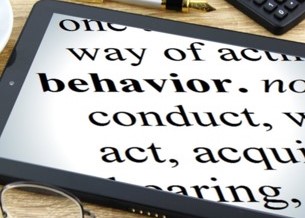Picture this: in a crowded train, someone accidentally bumps into you. What’s your immediate reaction? Feeling a surge of irritation or frustration is natural, but what happens next defines your self- and relationship management ability. How we handle such situations reveals our control over our behaviours, profoundly impacting our interactions with others. We clarify the importance of controlling behaviours and explore practical ways to enhance self- and relationship management for better behaviour outcomes.
Why Controlling Behaviours Matters
Controlling our behaviours doesn’t mean suppressing our emotions or becoming a robot. Instead, it’s about responding consciously rather than reacting impulsively. This control is crucial for several reasons:
- Improved Communication: We communicate more effectively. Responding thoughtfully instead of reacting emotionally allows us to convey our thoughts and feelings.
- Conflict Resolution: Pave the way for constructive conflict resolution. Staying composed prevents situations from escalating and creates a space for productive discussions.
- Building Trust: People appreciate those who can handle challenging situations gracefully, as it reflects emotional maturity.
- Enhanced Self-Respect: We honour our values and principles. This self-respect boosts confidence and contributes to a positive self-image.
Now, let’s explore practical self- and relationship management strategies that can lead to better behaviour outcomes:
- Mindful Pause: Imagine receiving a critical Whatsapp text from a friend. Your initial urge might be to fire back with an equally strong response. However, taking a mindful pause allows you to assess the situation objectively. This moment of reflection helps you choose an answer that aligns with your values and avoids unnecessary conflicts. As Viktor E. Frankl said: “In the moment between stimulus and response, we have the power to choose.”
- Empathy First: This is a powerful tool for relationship management. Before reacting to a friend’s behaviour, please take a moment to consider their perspective. Maybe your friend cancelled plans because of a personal issue. By understanding their point of view, you respond with empathy rather than frustration. Stephen Covey suggests: “When you show deep empathy toward others, their defensive energy goes down, and positive energy replaces it.”
- Active Listening: In conversations, practice active listening. Instead of formulating your response while the other person speaks, genuinely hear them. Responding based on what they’ve shared shows respect and encourages open dialogue. As said by Stephen Covey: “Most people do not listen with the intent to understand; they listen with the intent to reply.”
- Reflect and Learn: After situations where you felt your behaviour could have been better, take time to reflect. What triggered your reaction? How could you handle it differently next time? This reflection fosters personal growth and helps you make better choices in the future. “Mistakes are a part of being human. Appreciate your mistakes for what they are: precious life lessons that can only be learned the hard way.” – Al Franken.
- Set Boundaries: Healthy boundaries are essential for self- and relationship management. If someone consistently disrespects your boundaries, calmly assert them. Doing so demonstrates your self-respect and establishes guidelines for respectful interactions. “The only people who get upset about you setting boundaries are the ones who were benefiting from you having none.” – Unknown.
- Practice Gratitude: Developing gratitude can shift your mindset and behaviour. Focusing on what you’re grateful for makes you less likely to dwell on minor irritations. This positive perspective translates into more considerate behaviour towards others. “Gratitude makes sense of our past, brings peace for today, and creates a vision for tomorrow.” – Melody Beattie.
Controlling behaviours is a process of self-discovery and growth that enriches our relationships and personal well-being. By managing our reactions, practising empathy, and reflecting on our actions, we shape our behaviour outcomes positively. Remember, our small choices in behaviour can ripple through our relationships, influencing how we connect and contribute to the world around us. So, let’s embark on this self- and relationship management journey, leading to better behaviour and more fulfilling life. Lao Tzu said: “Mastering others is strength; mastering yourself is true power.”

